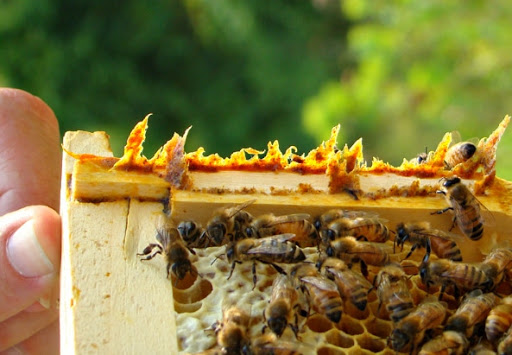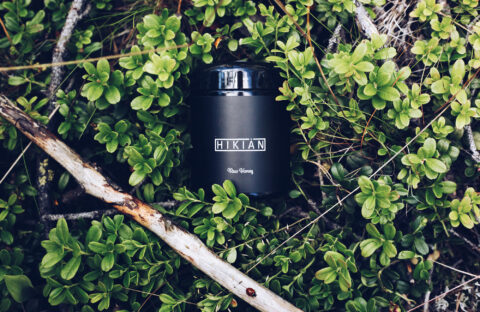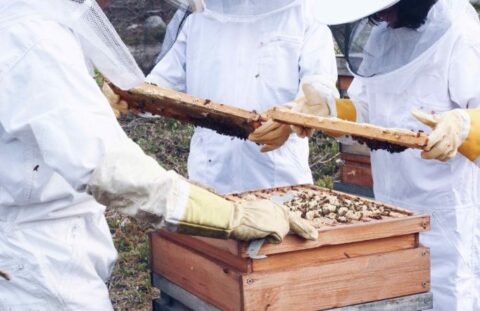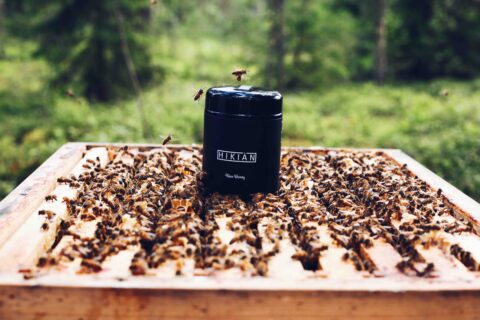While the whole world is gripped by the coronavirus or COVID-19 pandemic, scientists everywhere are working virtually 24/7 to come up with a vaccine to help in the war against the virus. However, the one problem with new vaccines is that they can’t be manufactured on an industrial scale for between a year and eighteen months after their creation as they have to first be trialled in animals, then humans, to ensure that they are both safe and also effective.
So, is there a shortcut? In simple terms no. However, while various groups of scientists are searching for a vaccine to help eradicate the virus, other researchers are working on identifying potential medicines to treat the COVID-19 virus, medicines that will help to alleviate the symptoms and stop the virus becoming so deadly in those who are elderly or in an “at-risk” group, such as those with diabetes, lung or heart disease.
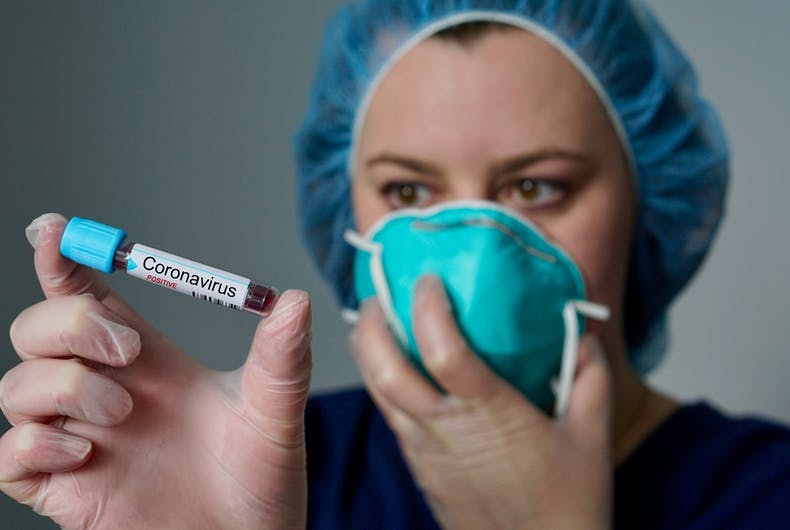
Certain COVID-19 research now focusing on propolis
For centuries, if not millennia, propolis has been known for its antiseptic and anti-inflammatory properties. Known as “bee glue”, bees create propolis to repair and maintain hives, as well as to help create an antiseptic environment safe from externally introduced diseases. Propolis is also believed to have anti carcinogenic and antioxidant properties while also being able to enhance the human body’s defence mechanisms as well as, presumably, that of bees! Certification of the health benefits of propolis.
Since 2010, Muhammad Sahlan, a certified chemical engineer at the Faculty of Engineering, University of Indonesia, has been tirelessly working on getting the medical and health benefits bee propolis “certified”. He has been doing this by examining the molecular structure of propolis and establishing how, exactly, it binds to target molecules in cells. This research has coincided with results published this January on research carried out in China relating to the molecular structure of COVID-19, a viral protease. As an example, HIV is also a protease virus. Protease viruses are also enzymes and, according to Springer Link’s Encyclopaedia of Modern Pharmacology “the role of these enzymes is to catalyze the cleavage of specific peptide bonds in viral polyprotein precursors or in cellular proteins. In most cases these proteolytic events are essential for the completion of the viral infectious cycle”.
To put this more simply and in a more understandable form, protease viruses are so designed to spread throughout an infected host, or to target a specific area. In the case of COVID-19, the virus attacks the respiratory system. Propolis could inhibit the COVID-19 virus from attaching itself to human cells.
The way to stop a viral infection is to disable its ability to attach itself to human cells. The research from China included the introduction of a synthetic molecule, N3, which could be a protease inhibitor, in other words, a compound which would stop the COVID-19 virus from attaching itself to human cells, and therefore stopping a person from becoming infected with the virus.
On reading about N3 Sahlan and his colleagues set about establishing how certain compounds in propolis might affect the COVID-19 virus. To explain further, a compound’s ‘stickyness’, is its ability to attach itself to a protease virus, thus rendering the virus incapable of infecting anyone. The N3 synthetic molecule had a value of -8.0, while three compounds in propolis identified by Sahlan and his colleagues produced “stickyness” figures of -7.9, -7.6 and -7.5 for Sulawesins a, Sulawesins b, and deoxypodophyllotoxin, respectively. According to Sahlan: “The more negative the value you have, the greater the ability of the compound to stick to the Covid-19 virus, so I say, it seems we have the potential”.
Propolis is not a cure for COVID-19 or coronavirus
There is a considerable amount of dangerously fake information on the internet about “cures” for coronavirus, so it is important you understand that this article is making no such claim and that we are simply providing you with some interesting and highly relevant results of research into the possible benefits of propolis in the fight against COVID-19.
According to BBC News: “The Food and Drug Monitoring Agency groups herbal medicines or natural medicines into herbs, standardized herbal medicines, and phytopharmaca. Natural medicines which claim their efficacy are proven based on empirical data but have not yet been tested through pre-clinical trials, are categorized as herbal medicine”.
Therefore, propolis can only be offered as herbal medicine, not Covid-19 medicine, according to Muhammad Sahlan.

